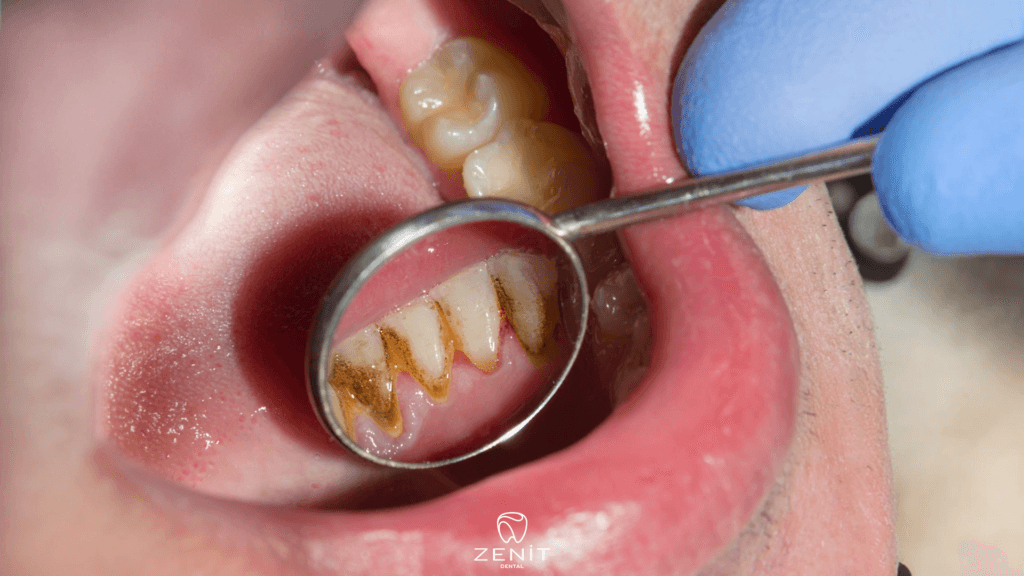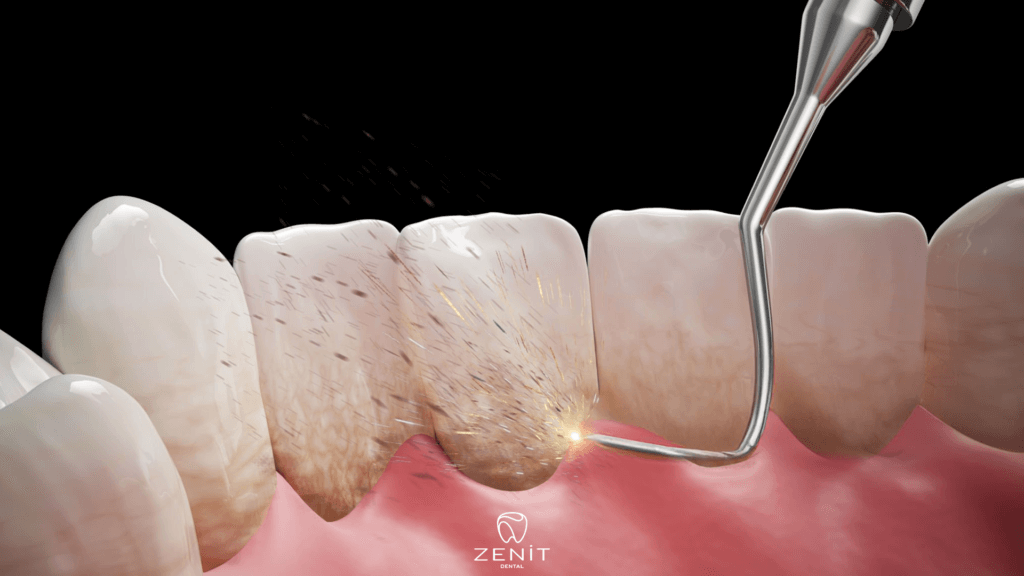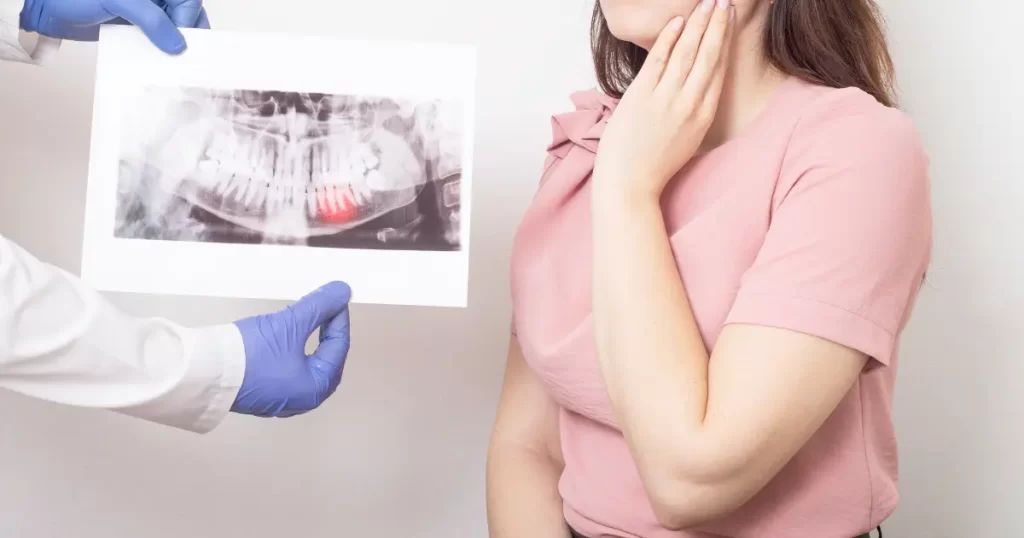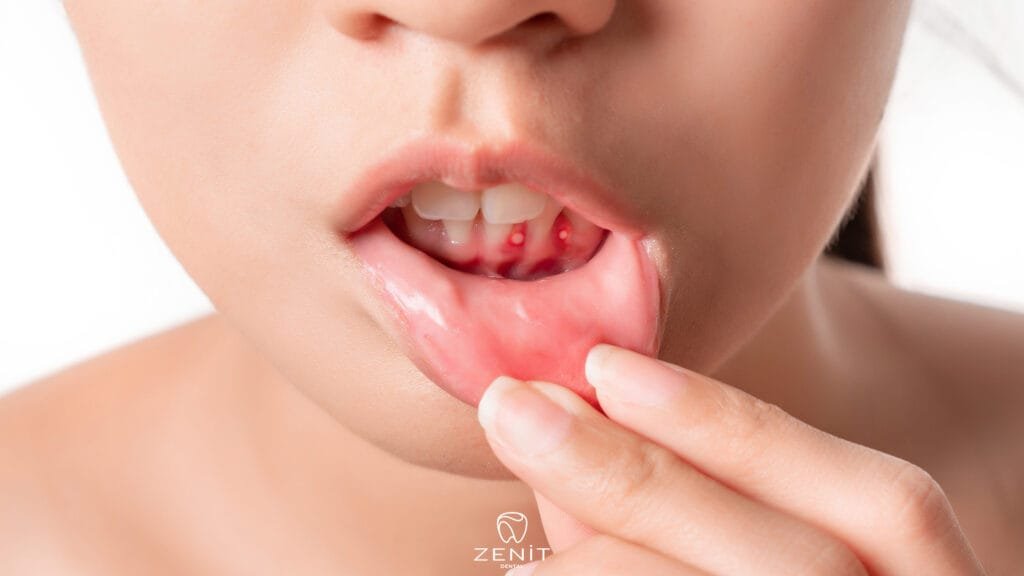Is Dental Stone Cleaning Harmful?
Dental tartar consists of plaque that accumulates on the surface of the teeth and hardens over time. These plaques are formed as a result of bacteria in the mouth combining with food residues and saliva. If plaque is not cleaned regularly, it mineralizes over time and turns into tartar. Tartar can cause receding gums, tooth decay and bad breath. Therefore, regular dental scaling is extremely important for both oral and general health. The notions in our society that having dental plaque cleaned is harmful are completely unfounded and far from reality.
The Importance of Dental Stone Cleaning
Dental scaling is a critical step for oral and dental health. Tartar can accumulate both above and below the gum line, and these deposits can lead to various health problems. Cleaning the stones is a process that should be done regularly to prevent gum diseases and keep the teeth healthy.
-Protects Gum Health: Dental tartar can lead to gum inflammation (gingivitis) and more advanced gum diseases (periodontitis). Tartars below the gum line further damage the gum tissue and can cause periodontal disease. These diseases can lead to serious problems that can include receding gums, bone loss, and eventually tooth loss. Regular stone cleaning helps prevent such diseases.
-Prevents Bad Breath: Tartars and plaques can cause bacterial accumulation in the mouth, leading to bad breath (halitosis). Cleaning dental tartar eliminates these bacterial accumulations, allowing you to have fresher breath.
-Improves the Aesthetic Appearance: Dental tartar spoils the aesthetic appearance of your smile by creating yellow and brown stains on the teeth. Cleaning the tartar restores the natural color of the teeth and provides a whiter, brighter smile.
-Increases the Durability of Teeth: Tartar and plaque accumulation can damage tooth enamel, causing tooth decay and tooth sensitivity. Cleaning dental tartar removes these harmful accumulations, increases the durability of teeth and reduces the risk of decay.
-Supports General Health: Oral health is directly related to general health. Gum disease is linked to heart disease, diabetes and other systemic diseases. Regular dental scaling helps prevent these diseases and protects your general health.
-Reduces Treatment Costs: Dental scaling helps early detection and treatment of tooth and gum diseases. Early intervention prevents more serious and costly treatments. Therefore, regular scaling can reduce dental treatment costs in the long run.
Dental scaling should be done by your dentist. Your dentist safely removes tartar using special tools and reduces plaque accumulation by polishing your teeth. Regular dentist check-ups and dental scaling are indispensable for a healthy and aesthetic smile.

How is Dental Stone Cleaning Done?
Dental scaling is a procedure performed by professional dentists. This process usually includes these steps:
- Examination and Evaluation: The dentist examines your teeth and gums and evaluates the tartar accumulation. X-rays are also taken to determine the degree of tartar formation.
- Scaling (Tartar Removal): Scaling is a procedure used to remove dental tartar. The dentist scrapes tartar deposits from the tooth surface using special tools. This procedure can be done both above and below the gum line.
- Root Planing: Root planing is performed to clean the dental stones and plaques under the gum line. This process smoothes the surface of the tooth roots, making it difficult for bacteria to re-adhere.
- Polishing and Fluoride Application: After scaling, your teeth are polished with a special paste. This ensures that the tooth surfaces are smooth and clean. Additionally, by applying fluoride, tooth enamel is strengthened and protection against decay is provided.
Is Dental Stone Cleaning Harmful?
Scaling is generally a safe and beneficial procedure for dental health. However, some individuals may be concerned that dental scaling may be harmful. Many of these concerns arise from misunderstandings or rare side effects.
During dental scaling, your dentist uses special tools to remove plaque and tartar accumulated on and under your teeth. This process is necessary to maintain the health of your gums and prevent tooth decay. Although some people think that tooth enamel may be damaged during the cleaning process, this is not true. Dentists have the equipment and knowledge to remove plaque and tartar without damaging tooth enamel.
Some people may experience slight sensitivity or temporary irritation in their gums after cleaning. This occurs because the gums are inflamed or plaque is removed during the cleaning process. However, this sensitivity is usually short-term and decreases as gum health improves.

Dental Stone Cleaning Prices
Dental scaling prices may vary depending on various factors. These factors include the dentist’s experience, the region where the clinic is located, the technologies used, and the treatment plan determined according to the patient’s needs.
First of all, the dentist’s experience and area of expertise are important factors affecting prices. More experienced and well-known dentists can often charge higher fees. In addition, the city and district where the dental clinic is located is another factor that determines the prices. Prices for clinics located in larger cities and central areas can often be higher than those in smaller communities.
The technologies and treatment methods used may also affect prices. Methods that require more advanced technology, such as laser-assisted cleaning, may be more expensive than traditional methods. In addition, the patient’s oral health status and the density of tartar accumulation also play a role in determining prices. Conditions that require more time and care may increase treatment costs.
To summarize; Cleaning dental stones is necessary to maintain oral health and have an aesthetic smile. Gum diseases and tooth decay can be prevented with professional dental scaling. You can minimize tartar formation at home by regular tooth brushing, flossing, mouthwash and a balanced diet. Additionally, it is important to constantly monitor your oral health with regular dental check-ups. Don’t forget to get rid of tartar for a healthy smile.
periodontology specialist Miraç Elbir
Is Dental Stone Cleaning Harmful? Is Dental Stone Cleaning Harmful? Is Dental Stone Cleaning Harmful? Is Dental Stone Cleaning Harmful? Is Dental Stone Cleaning Harmful? Is Dental Stone Cleaning Harmful?






